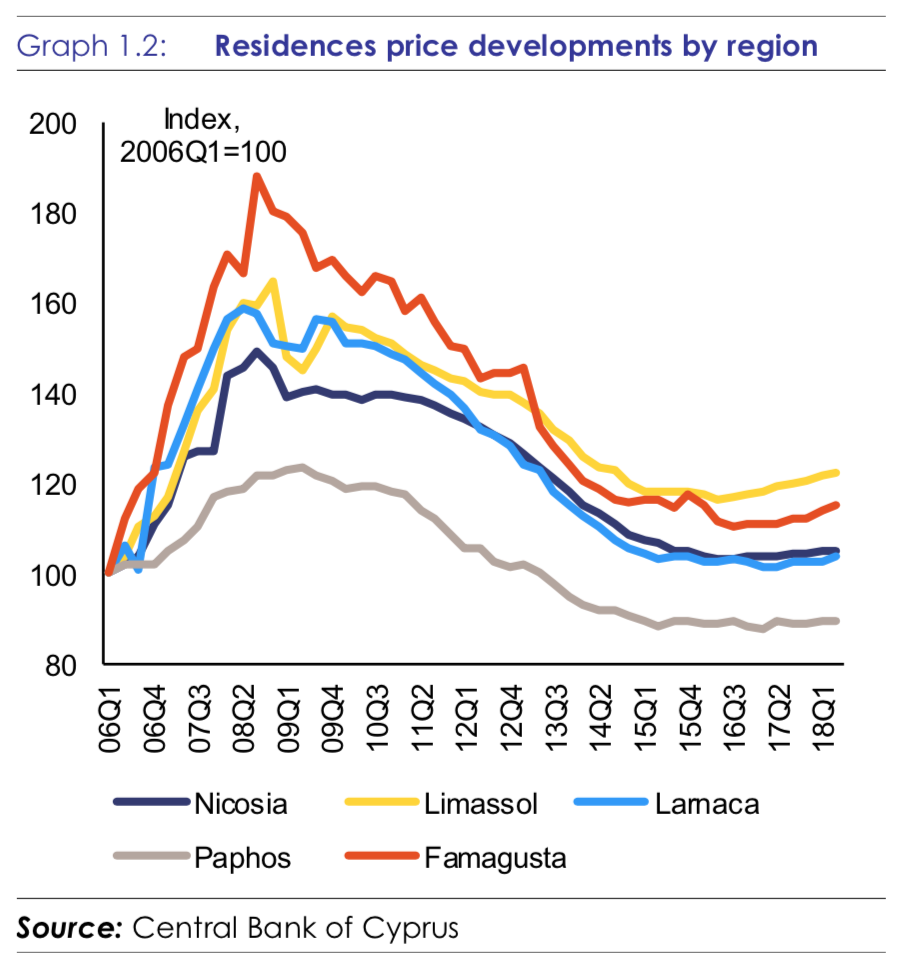The European commission has published country report for Cyprus 2019.
According to the report on Cyprus, the Commission report said
- Cyprus’ robust economic recovery has created favourable conditions to correct excessive macroeconomic imbalances and carry out key structural reforms to sustain growth in the long term.
- Cyprus’s public finances improved significantly in recent years.
- Economic growth has continued to be solid and the labour market has markedly improved.
The report also said Cyprus has made limited progress in setting up a reliable system to issue and transfer immovable property (e.g. buildings and land) rights, as there is still a large backlog in cases of buyers who paid the full amount for a property and have yet to receive their legal ownership documents. The reform of the local government, which could simplify the procedures, has not yet been adopted
Housing Market
The housing market recovery is largely driven by the inflow of foreign funds. An increasing number of acquisitions is made by foreigners: they bought nearly half (48 %) of all property sold in 2018.
The mandatory acquisition of personal immovable property under the residence and citizenship by investment schemes has been one of the key drivers of the real estate market recovery, adding to the traditional foreign demand for second homes in a holiday destination. It also contributed to the regional differences in price trends: real estate prices in Limassol, where the foreign, predominantly Russian, community is concentrated, rose much more strongly than elsewhere.
Meanwhile, house purchases by Cypriots continue to be restricted by limited bank lending. Therefore, despite the improving economic situation for Cypriot households, locals bought fewer properties than in the previous year.

The real estate supply may also increase if properties acquired to obtain citizenships are put up for sale.
GDP Growth
Cyprus continues to enjoy strong cyclical growth as it rebounds from the sharp contraction experienced during the crisis. After 2 years of remarkable growth, the Cypriot economy continued to expand solidly in 2018. Real GDP over the first three quarters of the year grew at around 4 % on annual terms, one of the strongest growth rates in the euro area. In 2018, it is expected to have surpassed pre-crisis peak level.
Growth is increasingly driven by investment and private demand. In 2016-2017, investment was the main contributor to growth, funded by hefty inflows of foreign capital. These flows financed tourism infrastructure, residential construction supported by the residence and citizenship by investment schemes with its mandatory acquisition of high value residence. and investments by special purpose entities (SPEs) , including registration





